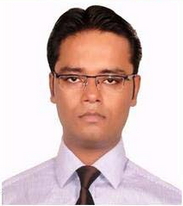Tags
2012, 2013, 2014, books for ECE, Coomunication, E&T, EC, ECE, Electronics, Electronics & Telecommunication Engineering, Electronics and Communication Engineering, Engineering, ESE, GATE, IES, Indian Engineering Services, Kunal Srivastava, Rank 1, Rank 44
Since the syllabus for GATE and IES is common so it is advisable is to prepare for both exams comprehensively.
GATE
- Gate questions are purely conceptual, test candidates on technical skills and numerical aptitude and in my opinion, without strong concepts and good link-up of subjects, scoring good rank in GATE is impossible. GATE exam has now opened doors for PSU’s making it all the more competitive. Over 2,56,000 candidates appeared in GATE 2013 in Electronics branch only.
- 65 questions in 3 hours make it nearly 3 minutes per question. But if concepts are not clear even this much of time is not sufficient. So clearly more emphasis is on accuracy than on speed. Large number of candidates gets caught in a very narrow band of marks. One should not take chances while answering. So answers which are not sure may be left.
- Developing concepts comes from reading books and applying them in a variety of practice questions to gain confidence. One standard book per subject is sufficient but often students are confused and use multiple textbooks. A standard book explains theory and follows it up with ample number of practice questions, but the book must be properly chosen. List of suggested books is given below.
- Notes borrowed from different sources may not be that much helpful because they are prepared keeping in mind latest exam questions and not syllabus. Pattern may change but syllabus is well defined, so book reading is highly recommended. Also I’ve seen cases where after reading notes one is able to solve past years questions easily but not comfortable with unseen questions. So that’s why I think notes available in the market nowadays are not exhaustive.
Also if everyone is reading from notes, then where is your advantage? - Coaching classes are more beneficial to aspirants because time spent with a good teacher is always more fruitful than time spent with books. A teacher is himself a summary of various books and with experience can give proper guidance. People who have themselves cleared these exams with good ranks are far better at understanding problems of the aspirants and guiding them in the right direction than those who have not appeared. So first inquire about faculty profiles, if possible ask their past years students then only join. Results nowadays are published almost everywhere. Also keep in mind the student-faculty ratio of the institute. If you are not getting your required time, doubt sessions and personal attention from faculty members due to whatever reasons, you are not benefiting from them.
- One of the most common mistakes while practicing questions is that students very easily refer to the solution manual if they are not getting answers right. Rather a habit of thinking properly and thinking over and over again must be developed. Do not rush to answers, think properly and answers will rush to you.
- Roughly 10 months is sufficient time to prepare for GATE. While studying a subject, focus first on theory, then summarize your learning in hand-written notes, then practice questions from standard book and then from past year’s GATE questions. Mark the questions which you could not solve and keep thinking over them. Re summarize your notes in as less space as possible. Keep these short notes with yourself and spend time reading them whenever you’re free like while traveling in bus. It is not required to study over 10 hours a day but your mind should be busy with concepts and questions 24×7. A friends circle with like-minded aspirants where you can put up your doubts and discuss is highly recommended.
- Dedicate at least 2 months for revision. Do not panic if you forget previously studied topics rather revise them whenever you get time. Revise the entire theory and practice only those questions which you were not able to solve in the past or you feel are the tricky ones. The more variety of unseen questions you have practiced, the more are your chances to solve GATE questions under examination pressure.
- There are times during preparation when you would feel low, tired or depressed. Do not allow this to continue. Talk to your parents or friends or teachers. Do not spend much time in a slump. If required avoid studying for a few days and then come back fresh.
BOOK LIST
| S. No. | Subject | Textbook |
| 1. | Electronic Devices and Circuits | Millman & Halkias |
| 2. | Analog Electronics | a) Millman & Halkias b) Sedra Smith (or) Donald Neamen |
| 3. | Digital Electronics | Morris Mano |
| 4. | Control Systems | B.S. Manke |
| 5. | Signals & Systems | a) Oppenheim b) Schaum’s series |
| 6. | Electromagnetic Theory | Sadiku |
| 7. | Network Theory | Sadiku |
| 8. | Microprocessor | Gaonkar |
| 9. | Communication Engineering | a) Simon Haykinsb) Schaum’s series |
| 10. | Engineering Mathematics | HK Das |
| 11. | Quantitative Aptitude | T. S. Jain |
*Mathematics & Aptitude book may not be required for most aspirants.
Wishing you best of Luck
Kunal Srivastava ( ECE )
AIR-1 ESE-2012
AIR-44 GATE-2013

Reblogged this on J.A.B.
RESPECTED SIR,
can i crack IES exam? presently i
am working as JE ( CPWD) .
AND I HAVE GOOD COMMAND IN
MY SUBJECTS . I PASS MY B TECH
WITH 78%.